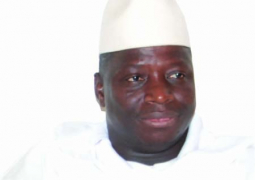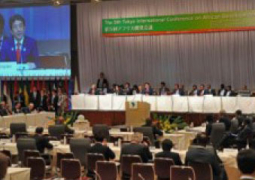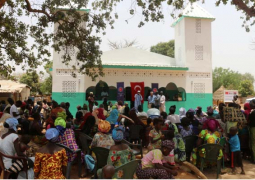In
deference to the importance of Agenda 2063 to the overall development of the
entire continent, the African Union Commission (AUC) is seeking to further
collaborate with the ECOWAS Commission in order to create meaningful synergies
around the agenda.
The
collaboration is also part of the measures to ensure that implementation of the
2063 agenda at the level of the Regional Economic Communities (RECs) is
seamless.
Interfacing
with the visiting officials of the AUC on the 31st of October 2016 at the
ECOWAS Commission in Abuja, the ECOWAS Director, Strategic Planning Essien Abel
Essien stressed the need for the streamlining of all programmes that resonates
with the agenda in such a way as to ensure that efforts are not duplicated and
implementation is done with a high degree of ownership of the programmes by
ECOWAS and its Member States.
He noted that the Strategic Planning is the
Directorate responsible for “drilling down” the decisions on the matter at the
level of the regional economic Communities.
He
therefore recommended the setting up of a REC Working Group to make room for
meaningful partnership and prevent a situation whereby the continental body
embarks on a programme and pushes it down the level of the REC for
implementation without concurrence and ownership.
Being
a plan for Africa’s structural transformation, Agenda 2063 was agreed upon by
the African Union (AU) at its Golden Jubilee in May 2013, fifty years after the
first thirty-three (33) independent African states gathered in Addis Ababa to
form the Organization of African Union.
It
seeks among others to: *Galvanize and
unite in action all Africans and the Diaspora around the common vision of a
peaceful, integrated and prosperous Africa.
*Harness
the continental endowments embodied in its people, history, cultures and
natural resources, geo-political position to effect equitable and
people-centered growth and development.
*Build
on and accelerate implementation of continental frameworks, and other similar
initiatives.
*Provide
internal coherence and coordination to continental, regional and national
frameworks and plans adopted by the AU, RECs and Members states plans and
strategies; and
*Offer
policy space for individual, sectoral and collective actions to realize the
continental vision.
Today,
the AU and the continent is looking ahead towards the next fifty years.
Africa’s political leadership acknowledges past achievements and challenges and
is rededicating itself to the Pan African vision of “an integrated, prosperous
and peaceful Africa, driven by its own citizens and representing a dynamic
force in the global arena.”
In
coming up with the Agenda, there were stakeholder consultations, member states
inputs, while a list of inspirations were rightly identified.
The
list of flagship programmes of the Agenda 2063 include: an Integrated High
Speed Train Network, Great Inga Dam, Single African Aviation Market, Outer
Space, The Pan African E-Network, Creation of an Annual African Consultative
Platform, Establishment of the Virtual University, Free Movement of Persons and
the African Passport, The Continental Free Trade Area, Silencing the Guns by
2020; and Development of a Commodity Strategy.
Agenda
2063 takes into cognizance the fact that most African economies now have in
place sound macro-economic and market-oriented economies which have spurred
growth, trade and investment expansion.
Going
forward, the Agenda seeks to build on this through its implementation plan and
domestication with the underlying principles derived from consultations, review
of national/regional plans and continental frameworks for the implementation,
subsidiarity; accountability and transparency; participation/inclusion;
integration; diversity; leveraging existing institutions and systems; as well
as harmonisation of policies and systems.
Hand
in hand with the other plans, is a veritable communication strategy to generate
sustained public awareness as well as the involvement, support and ownership by
the African population, of the Agenda and its execution.




